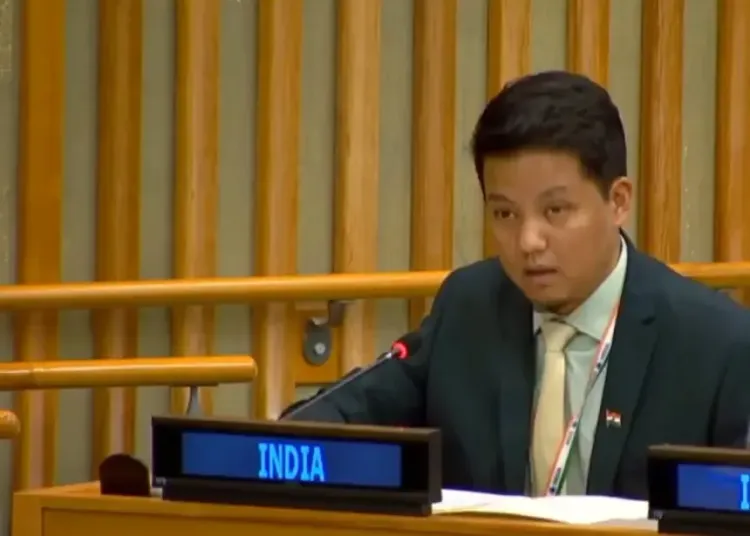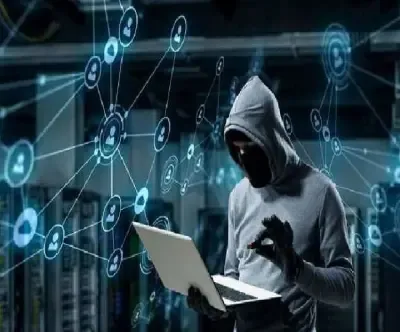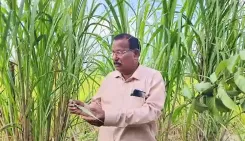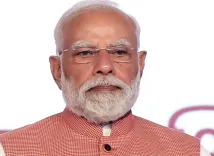Is India's Traditional Culture Really Under Threat According to the UN?

Synopsis
Key Takeaways
- India's cultural economy is thriving.
- Strong legal frameworks exist to protect traditional arts.
- Technology can enhance traditional cultural expressions.
- The UN report has been criticized as inaccurate.
- Traditional arts face challenges from AI-generated content.
United Nations, Nov 1 (NationPress) India has labeled a recent UN report as “inaccurate”, asserting that it contains numerous exaggerated claims about the threats to its “traditional cultural expressions”. Indian representatives highlighted that traditional arts, crafts, and performances are not only surviving but thriving throughout the nation.
India boasts a rich and varied cultural heritage encompassing artistic, literary, musical, and craft traditions that have endured for centuries. These traditions continue to flourish across the nation, as noted by Lok Sabha member Indra Hang Subba on Friday.
The MP from the Sikkim Krantikari Morcha remarked, “India’s cultural economy, which includes traditional arts and crafts, is experiencing significant growth, backed by strong public and governmental support.”
Subba further emphasized, “We find no empirical evidence to support the claim that there is a declining demand for India’s traditional cultural expressions.”
In recognizing the immense value of its heritage, India has implemented comprehensive legal and institutional frameworks to safeguard and promote its traditional knowledge and cultural expressions, as well as the geographical indications of various goods.
Subba's remarks were a response to assertions by Alexandra Xanthaki, the UN’s Special Rapporteur for Cultural Rights, whose report was under discussion at the General Assembly’s Third Committee, which focuses on cultural issues.
Xanthaki, a professor at Brunel University in the UK, is one of the special rapporteurs who serve as unpaid independent experts appointed by the UN Human Rights Council. They monitor alleged human rights issues, which do not necessarily reflect the views of the Secretary-General or the UN.
In her report, Xanthaki stated that “cultural expressions” in India are facing a decline in demand and are further threatened by middlemen and copyright laws.
She controversially claimed that the Indian Copyright Act is of a “communal nature” and thus fails to adequately protect traditional knowledge and art forms.
In response, Subba stated, “Characterizing the protection under India’s copyright law as superficial is both inaccurate and unwarranted.”
He explained that the Copyright Act and Information Technology Act provide robust mechanisms to regulate intermediaries and protect creators’ rights, including provisions for licensing, royalty collection, and enforcement against infringement.
Footnotes in Xanthaki’s report reveal that her observations were based on submissions from the Centre for Advanced Studies in Cyber Law and Artificial Intelligence at Rajiv Gandhi National University of Law in Punjab.
She further argued that threats to traditional art have been “exacerbated” by AI-generated art that replicates traditional styles without granting credit or compensation to original creators.
However, Subba countered by stating that “technology and new digital platforms have actually enhanced the reach and demand for traditional cultural expressions.”
Regarding AI, Xanthaki mentioned a lawsuit filed by major newspaper and book publishers in the Delhi High Court, claiming that OpenAI is using their content without permission to train ChatGPT.
She criticized AI, arguing that it fails to replicate the intricacies of Indian classical music and dance.
According to her, the microtonal variations known as shruti and raga cannot be accurately reproduced by AI tools, thus failing to capture the emotional depth of the art form. Furthermore, she noted that Tamil Nadu’s popular dance form has a unique set of codified gestures and rhythmic sequences that AI struggles to emulate, detracting from the emotional expression inherent to the dance.









